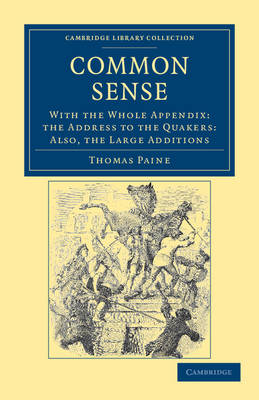Dover Thrift Editions
2 total works
This famous pamphlet - published anonymously in 1776 because of its seditious content - by the British political radical Thomas Paine (1737-1809) laid out his pioneering ideas for American independence, and earned him the title of 'Father of the American Revolution'. The Declaration of Independence, written chiefly by Thomas Jefferson and famously promulgated later that year, was influenced by Paine's arguments in this work: that America was too large to be governed by a country as small as Britain - which, he claimed, was ruling America only for its own financial gain - and that the colonies had now achieved the financial and military capacity to break free. Criticising the British monarchical system, with a single figure at its pinnacle, Paine called instead for a government that promoted security, liberty and equality for its people. Over half a million copies of this highly influential document were sold in America in its first year.
One of the great classics on democracy, Rights of Man was published in England in 1791 as a vindication of the French Revolution and a critique of the British system of government. In direct, forceful prose, Paine defends popular rights, national independence, revolutionary war, and economic growth - all considered dangerous and even seditious issues. In his introduction Eric Foner presents an overview of Paine's career as political theorist and pamphleteer, and supplies essential background material to Rights of Man. He discusses how Paine created a language of modern politics that brought important issues to the common man and the working classes and assesses the debt owed to Paine by the American and British radical traditions.

